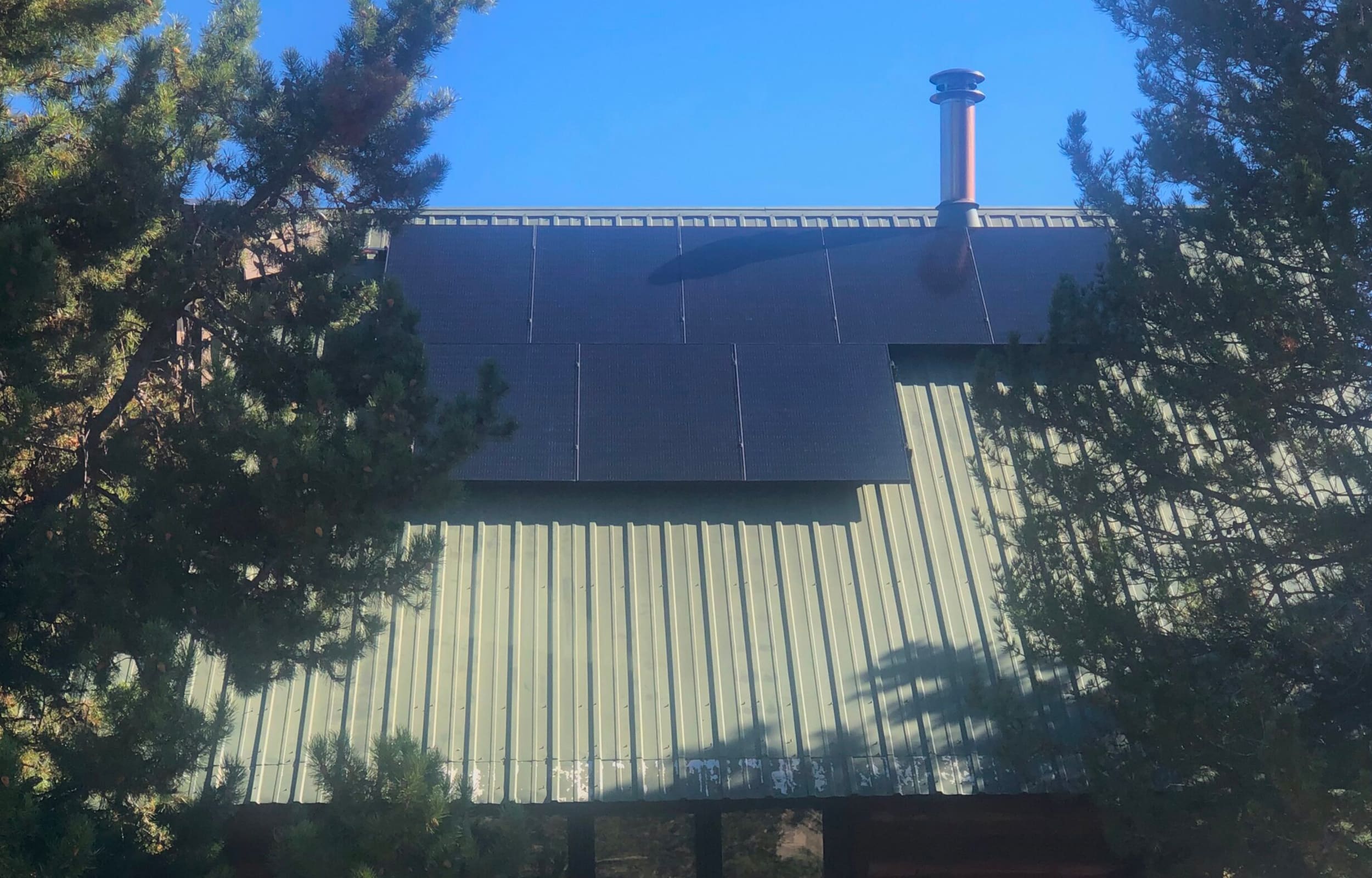Residential Energy Upgrade (RENU) Loan Program
Solar for James Ladtkow’s Home Away from Home
What CCEF
Financed
![]()
Solar
“The RENU loan had a low enough interest rate that it just made sense. I would do it again.”
– James Ladtkow
About the Project
Location: Golden
Measure(s) Financed: Rooftop Solar
The Story
James Ladtkow hadn’t paid for electricity on his primary home in three years. In time, he realized he was getting a lot of solar radiation on his family’s winter vacation home, too. “I thought, ‘Why not generate [electricity] in the summer and use that credit in the winter?’”
Ladtkow is an engineer and a self-professed “geek about tech stuff”—so it’s no surprise that he and his family monitor what they generate each day.
“If we find a spike in usage, we track that down,” he said. “We have data down to 15-minute increments.”
Ladtkow found that on their vacation home, which is located in a ski area, their electric bill would be as low as $30 in the summer and jump as high as $400 in the winter. For him, the decision to go solar was motivated mostly by the cost savings. He found that the average ROI for going solar is less than 10 years, and he believes in distributive generation of power—not relying on one location or one power plant for electricity.
“Obviously the money savings and ROI has to be there,” he said, “but to me, it’s just a much safer grid in general if we have distributed grid generation.”
Ladtkow’s advice to those hesitating to go solar on their homes is to buy, not lease. He shared that at his primary home, his family is able to run AC all summer, charge their electric car, and still not pay an electricity bill.
“I always tell people the ROI is so much better if you buy it, even if you have to finance,” he said. “The RENU loan had a low enough interest rate that it just made sense. I would do it again.”
To learn more about the Colorado RENU Loan Program, click here.



![IMG_2894[1] – Buff House (1)](https://cocleanenergyfund.com/wp-content/uploads/2024/01/IMG_28941-Buff-House-1-scaled.jpg)
